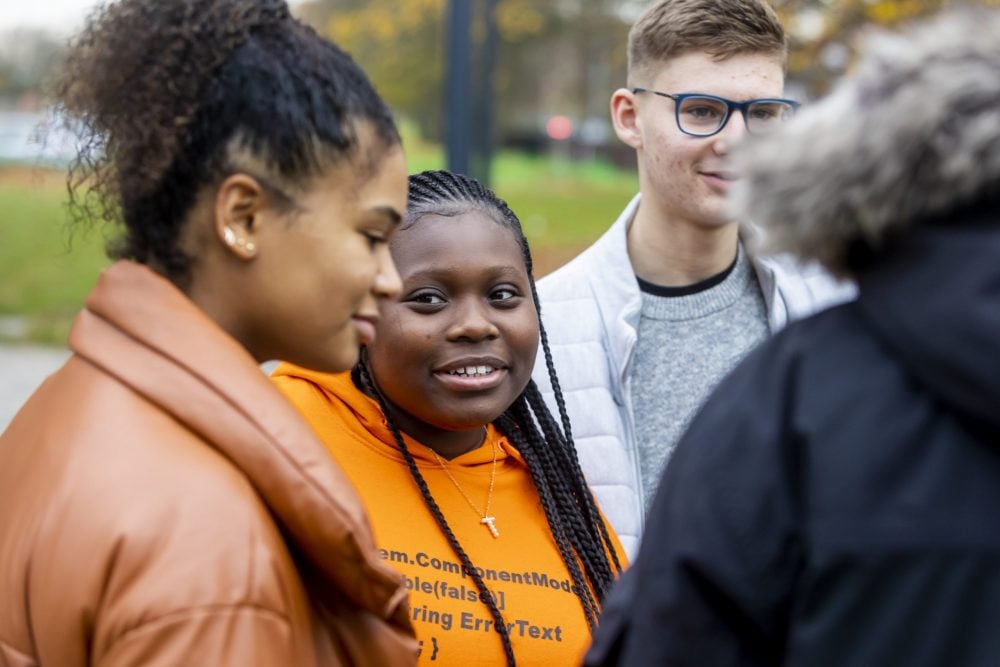Acupuncture
What is acupuncture and what are the benefits of it? Can offering yourself up as a human pin cushion really improve your health? The Mix gets straight to the point (sorry).

What is acupuncture?
Acupuncture has been practised for thousands of years in Traditional Chinese Medicine (TCM). The TCM theory says we have flows of energy, called qi (pronounced ‘chee’) channelling through our body. These channels are known as meridians and when they’re blocked it can cause imbalance in the body and ultimately illness.
How does it work?
An acupuncturist will insert very fine metal needles into carefully selected points under the skin to stimulate certain parts of the body. It’s thought that this releases any blockages and reinstates energy flow. More conventional theories state that the needles stimulate our nerves, increasing the body’s release of our natural painkillers and ‘feel good’ chemicals, endorphin and serotonin. Apparently, this affects the way pain signals are received.
What is getting acupuncture like?
Typically, your first consultation will be longer than subsequent appointments. The practitioner is likely to look at the colour and appearance of your tongue and assess the pulse of your wrists. They’ll also ask about your medical history and the symptoms you’re currently experiencing. Even if you’re normally alarmed by injections, don’t rule out acupuncture. The needles are much finer and the sensation is often described as a light tingling or dull ache. Most acupuncture sessions last for around 30 minutes.
What are the benefits of acupuncture?
People find acupuncture particularly beneficial for treating pain, such as headaches, back, shoulder, neck and leg pain. It’s also a well-used treatment for patients with bowel or bladder problems, such as Irritable Bowel Syndrome (IBS), allergies, menstrual problems and skin complaints. Others seek treatment when they’re trying to give up smoking. It’s also sometimes suggested as a treatment for ME symptoms.
Where’s the proof for acupuncture?
A British Medical Association (BMA) enquiry in 2,000 recommended that acupuncture should become more widely available on the NHS. Its two-year study found that the therapy proved effective in treating back and dental pain, nausea and migraine. The Cochrane Reviews provide independent evidence about the use of acupuncture for many complaints. According to these studies, there isn’t sufficient evidence to show that acupuncture is helpful for depression or as an aid to give up smoking. Its research into the use of acupuncture for neck pain is more positive.
Researchers in Germany have also claimed that acupuncture is one of the most effective therapies for back pain. The study, led by Dr Michael Haake of the University of Regensburg, discovered that six months’ treatment of acupuncture appears to be more effective than the more usual treatment involving a combination of medication, exercise and physical therapy.
Getting acupuncture treatment
Doctors (GPs) regard acupuncture as a more effective treatment than many alternative therapies, so it is possible to get a referral, but only for lower back pain.
The British Medical Acupuncture Society (BMAS) is a nationwide group of doctors and hospital specialists who practise acupuncture alongside more conventional techniques. It offers a more measured approach to the use and benefits of acupuncture and you’ll find some useful advice about seeking treatment on its website. You can search for a qualified professional in your area on the British Acupuncture Council’s website. Expect to pay upwards of £25 for a private session, often more depending on the length of the session.
If you’re considering a complementary treatment or therapy for any medical condition, always consult your doctor first. This is to make sure it doesn’t conflict with any existing course of treatment you may be taking, and also to check it won’t have a negative impact on your health.
Have you ever had acupuncture? Did you find it helped? Let us know your story on our discussion boards. Learn more about using health services here.
Next Steps
- Chat about this subject on our Discussion Boards.
By Holly Turner
Updated on 30-Sep-2022
No featured article







